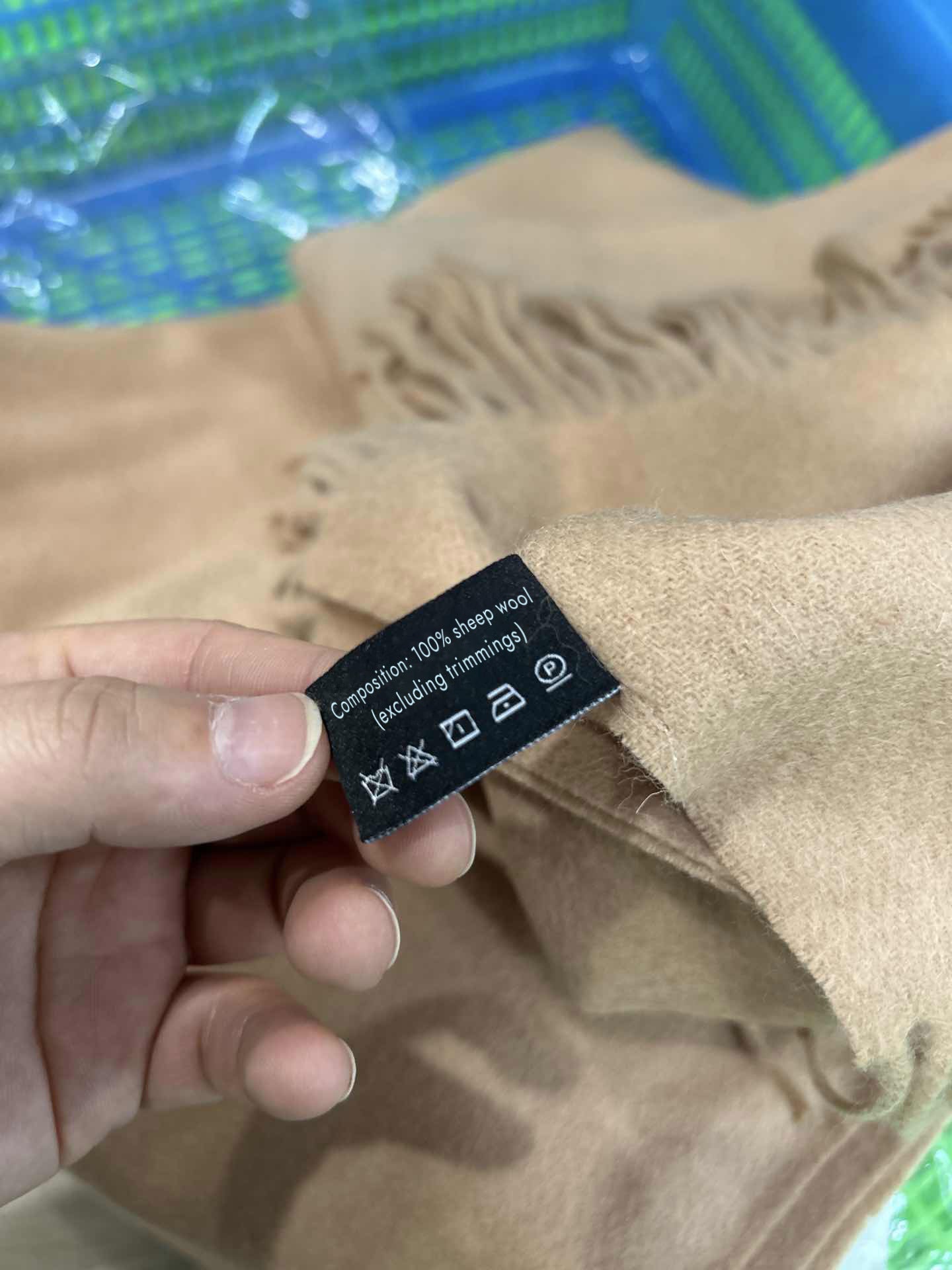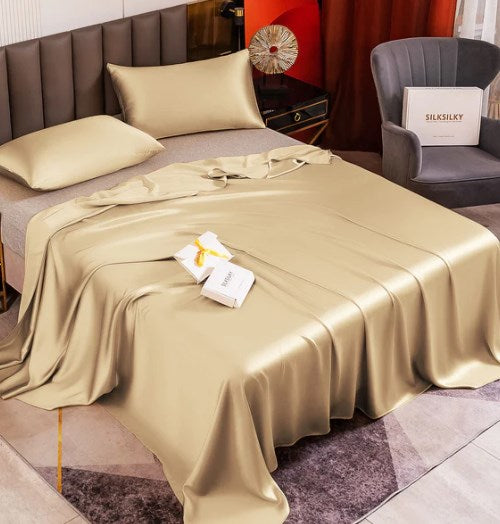5 Effective Tips for Managing Adolescent Acne: Your Path to Clearer Skin
Table of Contents
Acne during adolescence is a common and often frustrating issue that many young individuals face. While it's a natural part of growing up, it can still take a toll on self-esteem and confidence.
Fortunately, starting with switching to a silk pillowcase, there are several steps you can take to help manage and prevent acne breakouts. In this article, we'll explore five valuable tips to keep your skin clear and radiant during this challenging phase of life.
Upgrade Your Pillowcase to a Silk Pillowcase
Let's start with a simple but effective tip that can make a world of difference in your battle against acne: switch to a silk pillowcase.
Are silk pillowcases really beneficial for acne, or is it just a marketing gimmick? Many people may have such doubts. However slip silk pillowcase is a big selling point because of its luxurious and smooth fabric that reduces friction on your skin compared to traditional cotton pillowcases. This decreased friction minimizes irritation and reduces the likelihood of clogged pores, helping to prevent acne breakouts. At the same time , the long-term use of real silk pillowcase can also play a role in nourishing the skin.
Establish a Consistent Skincare Routine
Consistency is key when it comes to skincare. Developing a daily skincare routine is essential for managing adolescent acne. Here's a basic routine to get you started:
- Cleansing: Use a gentle, sulfate-free cleanser to wash your face twice a day, once in the morning and once before bed. This removes excess oil, dirt, and makeup, which can contribute to acne.
- Toning: Apply a gentle, alcohol-free toner to help balance your skin's pH levels and minimize pore appearance.
- Moisturizing: Use an oil-free, non-comedogenic moisturizer to keep your skin hydrated without clogging pores.
- Spot Treatment: If you have active breakouts, use a targeted spot treatment with ingredients like benzoyl peroxide or salicylic acid to help reduce inflammation and promote healing.
- Sun Protection: Don't forget to apply a broad-spectrum sunscreen with SPF 30 or higher during the day to protect your skin from UV damage.
Watch Your Diet
Your diet plays a significant role in the health of your skin. Try to limit your intake of sugary and processed foods, as they can trigger acne by increasing inflammation and oil production. Instead, focus on a balanced diet rich in fruits, vegetables, whole grains, lean proteins, and plenty of water. Certain foods like omega-3 fatty acids found in fish, flaxseeds, and walnuts can help reduce inflammation and improve overall skin health.

Don't Overdo It
While it may be tempting to attack acne breakouts with multiple treatments, it's important not to overdo it. Excessive scrubbing, harsh products, or multiple acne treatments can strip your skin of its natural oils, leading to dryness, irritation, and potentially more breakouts. Stick to your skincare routine and introduce new products gradually. If you're unsure about which products to use, consult a dermatologist for personalized recommendations.
Manage Stress
Stress is a known trigger for acne flare-ups. Adolescence can be a particularly stressful time with academic pressures, social challenges, and hormonal changes. Practicing stress management techniques such as deep breathing, meditation, exercise, or engaging in hobbies you enjoy can help reduce stress levels and minimize the impact on your skin.
FAQs About The Adolescent Acne
Q1: Is a silk pillowcase good for acne?
A1: Yes, a silk pillowcase can be beneficial for acne-prone skin. Unlike traditional cotton pillowcases, silk pillowcases have a smooth texture that reduces friction against the skin. This helps to minimize irritation and prevent clogged pores, ultimately reducing the likelihood of acne breakouts.
Q2: How to deal with back acne?
A2: Dealing with back acne, or "bacne," can be challenging. One effective approach is to use a gentle cleanser specifically formulated for acne-prone skin to wash the affected area daily. Exfoliating regularly can also help to remove dead skin cells and unclog pores. Additionally, wearing loose-fitting clothing made of breathable fabrics like cotton can help prevent friction and irritation that can exacerbate back acne.
Q3: What skincare routine is best for treating adolescent acne?
A3: A skincare routine for adolescent acne should focus on gentle cleansing, exfoliation, and hydration. Use a mild cleanser twice daily to remove dirt, oil, and bacteria from the skin. Incorporate an exfoliating treatment containing salicylic acid or benzoyl peroxide to unclog pores and prevent breakouts. Finish with a lightweight, oil-free moisturizer to keep the skin hydrated without clogging pores.
Q4: Can certain foods worsen adolescent acne?
A4: While the relationship between diet and acne is still debated, some studies suggest that certain foods may exacerbate acne in some individuals. These include high-glycemic foods like sugary snacks and refined carbohydrates, as well as dairy products and foods high in saturated fats. However, everyone's skin reacts differently, so it's essential to pay attention to how your diet affects your acne and adjust accordingly.
Q5: Is it necessary to see a dermatologist for adolescent acne?
A5: In many cases, adolescent acne can be effectively managed with over-the-counter skincare products and lifestyle changes. However, if acne persists despite these measures or is severe and causing emotional distress, it may be beneficial to consult a dermatologist. A dermatologist can provide personalized treatment options, including prescription medications or procedures, to help control acne and prevent scarring.
Conclusion
Dealing with acne during adolescence can be tough, but with the right approach, you can achieve clearer and healthier skin. Start by making simple changes like switching to a silk pillowcase and establishing a consistent skincare routine. Pay attention to your diet, avoid overusing acne treatments, and manage stress effectively.
Remember that everyone's skin is unique, so be patient and consult a dermatologist for personalized guidance if your acne persists.
By following these tips, you can embark on your journey to clearer and more confident skin during this transformative phase of your life.
![[Steel Blue] SilkSilky Pure Silk Short Sleeve Lapel Women's Pajamas 001](http://silksilky.com/cdn/shop/files/05b358f92fb5d252122b00d69a2fcfc5_c2bcaa31-045e-45fb-a592-b27081a92a02.jpg?v=1742576192&width=1200)
![[Steel Blue] SilkSilky Pure Silk Short Sleeve Lapel Women's Pajamas 002](http://silksilky.com/cdn/shop/files/8ddbc936a4ddb0c87e196d06c21a1c92_2f22e47d-5cee-4f8c-99cd-ef73efc83d6d.jpg?v=1742576199&width=1200)
![[Dark Blue] SilkSilky Pure Silk Sleeveless V Neck Camisole Set 001](http://silksilky.com/cdn/shop/files/86262eb066ef1b2ae68340640fba82ce_07ca0d49-d2f6-4af3-bcfb-e52e6198387a.jpg?v=1740623857&width=1200)
![[Dark Blue] SilkSilky Pure Silk Sleeveless V Neck Camisole Set 002](http://silksilky.com/cdn/shop/files/966f52f4318d23d226ffaaef6ba80157_c8e7c80a-5287-4901-9537-9f6f7a5736b2.jpg?v=1742365155&width=1200)
![[Dark Blue] SilkSilky Pure Silk Sleeveless V Neck Nightgown 001](http://silksilky.com/cdn/shop/files/9396d3bb36134a052ae43150557bf7d5_1dbc3def-53b1-42b6-b657-3b75f016acaf.jpg?v=1713176656&width=1200)
![[Dark Blue] SilkSilky Pure Silk Sleeveless V Neck Nightgown 002](http://silksilky.com/cdn/shop/files/4270d0aada0f1edef0e38a3968b4e790_e6fd783c-7cd0-43bb-8183-e68020a55a24.jpg?v=1745501868&width=1200)
![[Black] SilkSilky Pure Silk Short Sleeve Sweetheart Neck Nightgown 001](http://silksilky.com/cdn/shop/files/309cdab286f7f2533294847813befff7.jpg?v=1712721320&width=1200)
![[Black] SilkSilky Pure Silk Short Sleeve Sweetheart Neck Nightgown 002](http://silksilky.com/cdn/shop/files/5a48f0d82005d1f54c120bf5f7e3ea5c.jpg?v=1737622875&width=1200)
![[White] SilkSilky Pure Silk Sleeveless V Neck Nightgown 001](http://silksilky.com/cdn/shop/files/a8ae95260a57844b1e2e00c4fcfabdcc_a672288b-f949-4880-a3ed-385158e51f1b.jpg?v=1701858062&width=1200)
![[White] SilkSilky Pure Silk Sleeveless V Neck Nightgown 002](http://silksilky.com/cdn/shop/files/24ac506750f8c38c51bb5b6d0ee15287_6679bd3e-9d0e-4769-82b9-820525974a80.jpg?v=1737622740&width=1200)








